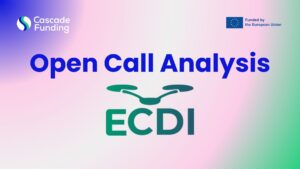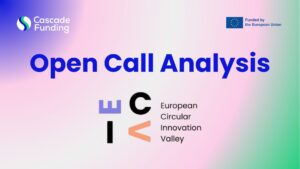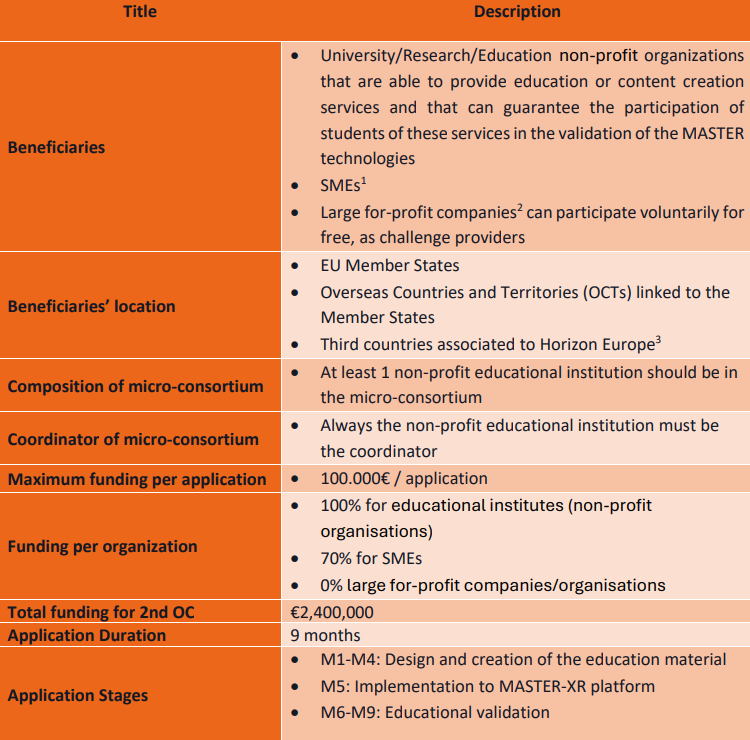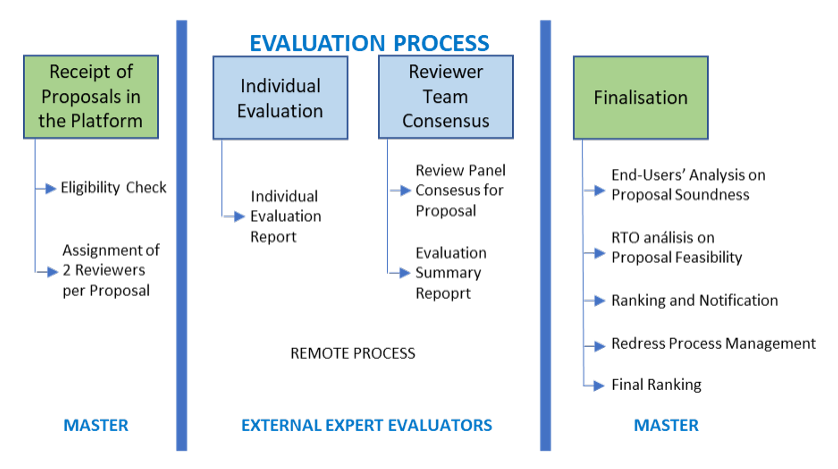XR meets robotics education! MASTER’s 2nd open call offers up to €100K for universities, research centres & non-profits to develop XR learning content. Apply by June 12, 2025!
About MASTER Open Call 2
The MASTER project focuses on combining XR technologies and robotics to enhance industrial training and education. The programme will last 9 months, encompassing the development and validation of educational content. It offers resources such as an Open XR platform, access to cutting-edge tools, and mentoring by the MASTER consortium partners.
MASTER’s 2nd Open Call in a nutshell:
What challenges can be addressed in the applications for this Open Call?
Industrial applications:
o EC – 1: Creation of machine tending applications
o EC – 2: Creation of line following robot applications
o EC – 3: Robot-assisted quality inspection
o EC – 4: XR for collaborative robot programming
Get to Know the Robots
o EC – 5: Understanding the robot reference systems
o EC – 6: Develop educational material focused on HRC for the general public
o EC – 7: Simulating robotic maintenance procedures
o EC – 8: Safety in human-robot collaboration
Open Challenge – Innovative applications on training of industrial robotics
o EC – 9: Introduction of AI on training of industrial robotics
o EC – 10: XR for remote and inclusive robotics education
o EC – 11: Multimodal interaction for XR-based robotics training
o EC – 12: Gamification of robotics training in XR
Why Apply to MASTER Open Call 2?
Applicants will have the opportunity to:
- Receive up to €100,000 in financial support.
- Gain access to the MASTER XR platform and innovative XR tools.
- Benefit from technical and educational mentoring.
- Validate and showcase their educational content within a professional community.
- Engage students directly with emerging XR and robotics technologies
Success Stories
The 1st Open Call of MASTER selected 17 applications, whose assets will be integrated in the MASTER-XR platform and will be available to the applicants of the 2nd Open Call to create their educational content and validate it in their classrooms. All OC1 awarded projects can be found at: https://www.master-xr.eu/oc-n/open-call-1/. A couple of examples are presented below:
Examples
- AAXLP: In order to support factory layout planning and its education, we are exploring the integration of XR and AI technologies for an intuitive way of creating factory planning scenarios. An AI-based method such as a large language model (LLM) can be utilized to perform actions based on the user’s voice prompt. Ainak Oy is developing a solution in collaboration with Metropolia University to tackle this challenge. At the current stage, the prototype shows the connection of a Unity app functions to an LLM. This eliminates the need for the older approaches of using buttons or dragging and dropping models to plan a layout. The general idea is that the user’s voice prompt is first converted to text and then sent to an LLM which is configured to send back commands understandable by the XR application. The commands include the necessary parameters like the object name and position information. In the prototype implementation of this idea, the user can spawn, move, and delete factory planning objects like robotic arms, forklifts, and assembly desks in an environment powered by Unity. The user can also perform actions using buttons and the AI tool will still understand the objects created or moved with the normal UI-
- DREAMER: Robots are rapidly replacing humans in manufacturing and operators are taking a different role alongside robotic partners. This Industry 4.0 shift introduces new concerns regarding ergonomy and operator safety in the modern workplace. XR technologies have emerged as an integral component of Industry 4.0 changing both the operational landscape as well as training. Creating realistic simulation environments is important for proper, effective and safe training of all participants. DREAMER proposes an add-on to the MASTER platform that will allow for the 3D reconstruction of physical objects and the embedding into virtual scenes. Our goal is to facilitate the creation of 3D content for populating simulated virtual worlds for realistic, risk-free, training scenarios in robotics. Generative AI can automate the creation of digital replicas of models through training on existing data. This accelerates the process of creating virtual representations of physical entities, reducing the time and effort required for 3D content creation. Our solution is based on a self-supervised AI learning agent that is trained on streams of images to rapidly extract a 3D mesh representation of a physical object. Our goal is to provide an easy-to-use tool that can be used to rapidly prototype, update and demonstrate simulated scenarios in a collaborative environment or aid in the education process by giving the instructor and trainee the tool to bring relevant physical objects into the virtual world. Such a tool is also not limited to XR applications for robotics as it can greatly benefit the industrial sector, movie industry, games, AEC and 3D eCommerce.
Who Can Apply?
Eligible applicants are universities/research/education non-profit organizations. SMEs and large for-profit companies can participate as challenge providers. Both individual institutions and micro-consortia are eligible. Each consortium must include at least one non-profit educational institution, which must act as the coordinator.
Applicants must be from EU Member States, OCTs (Overseas Countries and Territories) linked to Member States, or third countries associated with Horizon Europe.
How to Apply to MASTER Open Call 2
Proposals must be submitted only through the submission system provided by MASTER (https://www.master-xr.eu/open-calls/).
The application forms submitted to the 2nd Open Call will include the following sections:
- Cover Page
- Basic information for the application
- Targeted challenge of the application (only one can be selected)
- Legal information for the coordinator and application members
- Consortium composition
- Project abstract
- (Scored) Scientific / Technological Excellence
- (Scored) Impact
- (Scored) Implementation
- IP and Ethical Issues
Additionally, in the submission system, the coordinator should provide an informed consent form on behalf of all the entities involved in the micro-consortium, confirming that they have read, understood and agreed with the information provided in the Open Call documents, as well as declare any potential conflict of interest, if exists.
Proposal Requirements for MASTER Open Call 2
Projects should focus on research activities that exploit or foster the adoption of FAIR data, strengthen FAIR competences, practices, and technologies. Projects can involve developing or making available services or tools (software, hardware, middleware, protocols, standards, benchmarks, documentation, training/mentoring materials) that enable Open Research and encourage open science practices based on FAIR principles.
The calls are open to proposals responding to Open Science / Data FAIRNESS challenge(s) in the domains and the type of challenge indicated below. Multiple choices are allowed.
- Domains: (1) Astrophysics, cosmology, particle or nuclear physics; (2) Social sciences and humanities; (3) Photon/neutron sources-based experimental research; (4) Life sciences: (5) Earth and environmental sciences; or (6) other (specify).
- Type of challenge: (1) Open Science Project; (2) Open Science Service; (3) Industry cooperation; (4) Citizen science; (5) Main RI concerned; (6) Cross-domain/ Cross-RI; (7) Other (specify)
Proposals should clearly articulate the project’s objectives, expected impacts, and alignment with FAIR data principles.
Evaluation and Selection Process for MASTER Open Call 2
Proposals will be evaluated based on:
- Excellence and innovation:
- Soundness and pertinence of the project goals with the challenges proposed in the call
- Credibility of the targeted technological, industrial, educational KPIs to measure the results
- Concreteness of the technical approach and the methodology
- Integrability in the open platform
- Impact and scalability
- Contribute to a significant improvement of sustainability and competitiveness.
- Contribution to the objectives of MASTER and hence to the European XR ecosystem
- Credibility of impact KPI targets defined in the proposal
- Implementation quality
- Soundness of the work plan, including relevance of the tasks and the timing of activities
- Applicants’ capacity to implement the proposal
- If the application is submitted by a small consortium, the complementarity of the participants.
The evaluation process is drafted in the diagram:
Additional Support Beyond Funding
Selected applicants will also benefit from:
- Mentoring in technical and educational domains
- Access to a network of XR and robotics experts
- Opportunities to present their work at project events
Important Dates
- Submission Deadline: 12/06/2025, 18:00 CET
- Evaluation and Selection: 13 June – 31 July 2025
- Contract Preparation: 18 July – 31 August 2025
- Acceleration Programme: 1 September 2025 – 31 May 2026
Final Thoughts on MASTER Open Call 2
This Open Call represents a unique opportunity to revolutionise robotics education using XR technologies. With substantial funding, expert mentoring, and an innovative platform, applicants can significantly impact the future of industrial training. Interested parties are highly encouraged to check the detailed documents, videos and other materials available at the call site for guidance on preparing successful proposals.
More Information
The MASTER project, supported by the European Union, aims to enhance education and training in robotics through XR innovations. Partners include top universities, research institutions, and tech companies.
For more information:
Don’t miss the opportunity that could be the turning point of your success
Follow us on social media so you won’t miss any upcoming Info Days or Cascade Funding Opportunities


Open Call Analysis: ECIV Open 1 – Interregional Circular Innovation Projects




